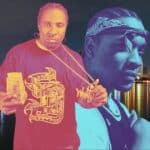Hip-hop has become a global phenomenon that has transcended borders and cultures. One country that has embraced this genre is Ethiopia. Despite its rich cultural heritage, Ethiopia has welcomed hip-hop with open arms, and the genre is thriving in the country.
Ethiopian hip-hop has a unique flavor that is a blend of traditional Ethiopian music and modern hip-hop beats. The genre has given a voice to talented young people in the country and has offered opportunities that have changed lives. The capital city of Addis Ababa has been the main entry point for hip-hop, with pioneering artists like Lij Michael, Abyssinia Boys, and Afaris leading the way.
Today, Ethiopian hip-hop has come a long way, and the scene is bursting out of the underground. The rise of artists like Kassmasse has put Ethiopian hip-hop on the map, and the genre is gaining recognition both locally and internationally. In this article, we will take a closer look at the history of Ethiopian hip-hop, its unique flavor, and the artists who are driving the scene forward.
The Genesis of Hip-Hop in Ethiopia
Hip-hop music has a relatively short history in Ethiopia, dating back to the early 2000s. The genre initially gained popularity among the youth in Addis Ababa, the capital city. As a result, the city has become the epicenter of Ethiopian hip-hop culture.
One of the defining features of Ethiopian hip-hop is the use of the Amharic language in the lyrics. This has helped the genre to gain a strong foothold in the country, as it allows for greater accessibility and relatability among Ethiopian youth.
Hip-hop music in Ethiopia has been influenced by a variety of factors, including the country’s rich musical heritage. Ethiopian music has a long history, dating back centuries, and has a distinct sound that is characterized by the use of traditional instruments such as the krar and the masenqo.
The emergence of hip-hop in Ethiopia has also been influenced by global trends and styles. Ethiopian hip-hop artists have been known to incorporate elements of American and European hip-hop into their music, while still maintaining a distinct Ethiopian flavor.
In the early years of Ethiopian hip-hop, artists such as Algorhythm and the Mad Boys were instrumental in laying the groundwork for the genre. They helped to establish a local hip-hop scene and paved the way for younger artists to follow in their footsteps.
Overall, the genesis of hip-hop in Ethiopia can be traced back to a combination of local and global influences, as well as the creativity and passion of the country’s youth. Today, Ethiopian hip-hop continues to evolve and grow, with new artists emerging and pushing the boundaries of the genre.
Prominent Ethiopian Hip-Hop Artists
Teddy Yo
Teddy Yo is a well-known Ethiopian hip-hop artist who has been in the music industry for over a decade. He started his career as a member of the group “Jano
Influence of Foreign Hip-Hop
Foreign hip-hop has played a significant role in shaping the hip-hop culture in Ethiopia. The introduction of foreign hip-hop artists like Nas, LL Cool J, Tupac, and Kanye West has influenced the lyrics, beats, and fashion in Ethiopian hip-hop.
These foreign artists have brought a new sound and style that has been embraced by Ethiopian hip-hop artists, leading to the creation of unique and diverse music. The incorporation of foreign hip-hop has allowed Ethiopian hip-hop to evolve and grow, giving it a distinct identity.
One of the most significant impacts of foreign hip-hop is the introduction of socially conscious lyrics. Artists like Common and Tupac have inspired Ethiopian hip-hop artists to use their music as a platform to address social and political issues in their country.
Foreign hip-hop has also influenced the fashion and style of Ethiopian hip-hop artists. The adoption of baggy clothing, baseball caps, and sneakers has become a popular trend in Ethiopian hip-hop fashion.
Despite the influence of foreign hip-hop, Ethiopian hip-hop artists have managed to maintain their unique cultural identity. The fusion of traditional Ethiopian music with foreign hip-hop has created a new sound that is distinct from other hip-hop genres.
In conclusion, foreign hip-hop has played a significant role in shaping the hip-hop culture in Ethiopia. It has brought new sounds, styles, and socially conscious lyrics that have influenced Ethiopian hip-hop artists. However, Ethiopian hip-hop has managed to maintain its unique cultural identity, creating a distinct sound that sets it apart from other hip-hop genres.
Ethiopian Hip-Hop and Social Issues
Hip-hop music in Ethiopia has been instrumental in bringing attention to various social issues affecting the country. Many Ethiopian hip-hop artists use their music to address issues such as poverty, education, materialism, and racism.
One of the most significant social issues that Ethiopian hip-hop addresses is poverty. Many Ethiopian hip-hop artists come from low-income backgrounds and have experienced firsthand the effects of poverty on their communities. They use their music to raise awareness about the challenges faced by those living in poverty and advocate for change.
Education is another critical issue that Ethiopian hip-hop addresses. Many Ethiopian hip-hop artists emphasize the importance of education and encourage young people to pursue their dreams despite the challenges they may face. They also highlight the importance of education in breaking the cycle of poverty and creating a brighter future for Ethiopia.
Materialism is another issue that Ethiopian hip-hop addresses. Many Ethiopian hip-hop artists criticize the unhealthy focus on material possessions and the negative impact it can have on society. They encourage listeners to focus on more meaningful aspects of life, such as relationships, community, and personal growth.
Finally, racism is another issue that Ethiopian hip-hop addresses. Many Ethiopian hip-hop artists speak out against racism and discrimination, which has been a significant problem in Ethiopia’s history. They use their music to promote unity and understanding among different ethnic groups and to advocate for equality and justice.
Overall, Ethiopian hip-hop has been a powerful tool for addressing social issues and promoting positive change in Ethiopia. Through their music, Ethiopian hip-hop artists have been able to raise awareness about important issues and inspire listeners to take action to create a better future for themselves and their communities.
Unique Style and Language in Ethiopian Hip-Hop
Ethiopian hip-hop has a unique style that sets it apart from other hip-hop scenes around the world. Many Ethiopian hip-hop artists skillfully blend traditional beats and instruments into their own unique styles, creating a sound that is both modern and deeply rooted in Ethiopian culture.
One of the distinguishing features of Ethiopian hip-hop is the use of local languages. While some artists may rap in English, the majority of Ethiopian hip-hop is performed in Amharic or any of the more than 80 local languages. This allows artists to better connect with their audiences and convey their messages more effectively.
The use of Amharic in Ethiopian hip-hop is particularly significant, as it is the official language of Ethiopia and is spoken by a large portion of the population. By using Amharic in their music, Ethiopian hip-hop artists are able to reach a wider audience and promote their culture and language to the world.
In addition to using local languages, Ethiopian hip-hop also incorporates unique beats and rhythms that reflect the country’s diverse musical traditions. Some artists, like Faf Crazzy and the Gamo Boys, skillfully blend traditional beats and instruments into their own unique styles, while others draw inspiration from Ethiopian jazz, reggae, and other genres.
Overall, the unique style and language of Ethiopian hip-hop reflects the country’s rich cultural heritage and its vibrant and diverse music scene.
Production and Record Labels in Ethiopian Hip-Hop
Ethiopian hip hop has seen a rise in production and record labels in recent years. This has led to an increase in the number of artists and the quality of their music. Some of the notable record labels in Ethiopian hip hop include:
- Addis Guday Entertainment: This is one of the leading record labels in Ethiopia. It was founded in 2014 and has since then signed some of the top hip hop artists in the country. The label is known for producing quality music and promoting young talents.
- Wudasse Entertainment: This is another prominent record label in Ethiopian hip hop. It was established in 2015 and has since then produced some of the best hip hop tracks in the country. The label is known for its unique sound and its ability to promote emerging artists.
- Habesha Entertainment: This is a relatively new record label in Ethiopian hip hop, but it has already made a name for itself. It was founded in 2018 and has quickly become one of the most sought-after labels in the country. The label is known for producing music that reflects the culture and traditions of Ethiopia.
In terms of production, there are several producers who have contributed to the growth of Ethiopian hip hop. Some of the notable producers include:
- Dawit Nega: He is one of the most respected producers in Ethiopian hip hop. He has produced several hit tracks for some of the top artists in the country.
- Rophnan: He is a multi-talented producer and artist who has been instrumental in the growth of Ethiopian hip hop. He has produced several hit tracks and has worked with some of the top artists in the country.
- Abel Mulugeta: He is a well-known producer who has produced several hit tracks for some of the top artists in Ethiopia. He is known for his unique sound and his ability to bring out the best in artists.
In conclusion, the production and record labels in Ethiopian hip hop have played a significant role in the growth of the genre. They have provided a platform for emerging artists to showcase their talents and have contributed to the quality of music produced in the country.
Battle Rap and Respect in Ethiopian Hip-Hop
One of the most popular aspects of hip-hop culture in Ethiopia is battle rap. Battle rap is a form of competitive rhyming that has its roots in African American culture. It is a form of rap music that involves two or more rappers who compete against each other with improvised lyrics. Battle rap is known for its rawness and hyper-competitive nature, and it has become a distinct subculture within the Ethiopian hip-hop scene.
In Ethiopian battle rap, respect is a crucial element. Rappers must show respect for their opponents, even as they try to outdo them with their rhymes. This respect is not only for the opponent but also for the culture and the art form. Ethiopian battle rappers pride themselves on their ability to deliver clever, witty, and well-crafted rhymes while maintaining respect for their opponents and the audience.
Respect is also shown through the use of traditional Ethiopian cultural references in battle rap. Ethiopian rappers incorporate elements of their culture, such as proverbs, into their rhymes, adding a unique flavor to their performances. This incorporation of cultural references is a way for rappers to pay homage to their heritage while also showcasing their skills as rappers.
In Ethiopian battle rap, winning is not the only goal. Rappers aim to entertain the audience and showcase their skills while also respecting their opponents. The audience plays a crucial role in the battle rap culture, and their reactions can determine the outcome of a battle. Rappers must be able to read the audience and adjust their performances accordingly, adding to the excitement and energy of the battle.
Overall, battle rap and respect are integral parts of Ethiopian hip-hop culture. Ethiopian battle rappers take pride in their ability to deliver clever and well-crafted rhymes while maintaining respect for their opponents and the culture. The incorporation of traditional Ethiopian cultural references adds a unique flavor to their performances, showcasing their skills as rappers while paying homage to their heritage.
Influence of Reggae and Traditional Music
Hip-hop in Ethiopia has been heavily influenced by both reggae and traditional music. Reggae music has been popular in Ethiopia since the 1970s, and it has had a significant impact on the country’s music scene. Reggae’s message of social justice and equality resonated with Ethiopians, who were fighting against oppression and inequality at the time.
In addition to reggae, traditional Ethiopian music has also played a vital role in shaping the country’s hip-hop culture. Traditional values and beats have been incorporated into hip-hop music, creating a unique sound that is distinctly Ethiopian. The use of traditional instruments, such as the krar and the masinko, has also contributed to the development of this sound.
One of the most influential figures in Ethiopian music is Mulatu Astatke. Known as the “father of Ethio-jazz,” Astatke has been instrumental in blending traditional Ethiopian music with jazz and other Western genres. His work has inspired a generation of Ethiopian musicians, including those in the hip-hop scene.
Overall, the influence of reggae and traditional music on hip-hop in Ethiopia has been significant. These genres have contributed to the development of a unique sound that reflects the country’s rich cultural heritage. Hip-hop in Ethiopia continues to evolve, but it remains grounded in the traditions and values that have shaped the country’s music for centuries.
Rising Stars and Future of Ethiopian Hip-Hop
Ethiopian hip-hop has been on the rise in recent years, with a growing number of talented artists emerging on the scene. These rising stars are bringing a fresh perspective to the genre, infusing it with their unique experiences and perspectives.
One such rising star is Kassmasse, who has been making waves in the Ethiopian rap scene with his unique blend of traditional Ethiopian music and modern hip-hop beats. His ability to seamlessly fuse these two genres has earned him praise from fans and critics alike, and he is quickly becoming one of the most exciting artists in the country.
Another rising star to watch is Lij Michael, who is considered one of the pioneers of Ethiopian hip-hop. He began his career as a DJ and has since become one of the most respected rappers in the country. His music often tackles social and political issues, and he has become a voice for the youth in Ethiopia.
Looking to the future, it is clear that Ethiopian hip-hop has a bright future ahead. As global youth culture continues to embrace hip-hop, it is likely that more and more young Ethiopians will be drawn to the genre. With so many talented artists emerging on the scene, it is only a matter of time before Ethiopian hip-hop becomes a major force in the global music industry.
Overall, the future looks bright for Ethiopian hip-hop, and fans of the genre have much to be excited about. With so many talented artists on the rise, it is clear that the best is yet to come.
Frequently Asked Questions
Who are some notable Ethiopian hip-hop artists?
Ethiopia has a vibrant hip-hop scene with many talented artists. Some notable Ethiopian hip-hop artists include Haile Roots, Lij Michael, Abelone, St. Yared, and Kalkidan Mashasha.
What is the history of hip-hop in Ethiopia?
Hip-hop in Ethiopia has its roots in the 1980s when Ethiopian youth were exposed to American hip-hop culture through radio and television. The genre gained popularity in the 1990s, with the emergence of artists like Teddy Yo and Tewodros Kassahun, better known as Teddy Afro.
Who is considered the pioneer of hip-hop in Ethiopia?
The pioneer of hip-hop in Ethiopia is widely considered to be the late rapper, Eyob Mekonnen. He was one of the first Ethiopian artists to incorporate hip-hop into his music and was instrumental in popularizing the genre in Ethiopia.
What impact has hip-hop had on Ethiopian culture?
Hip-hop has had a significant impact on Ethiopian culture, giving a voice to young people and providing a platform for social and political commentary. It has also helped to break down cultural barriers and promote unity among Ethiopians.
What are some popular Ethiopian-American hip-hop collaborations?
There have been several popular Ethiopian-American hip-hop collaborations, including “Ethiopia” by Nas and Damian Marley, “We Are” by K’naan featuring Nelly Furtado, and “Black Coffee” by RZA featuring U-God.
How has the Ethiopian hip-hop scene evolved over time?
The Ethiopian hip-hop scene has evolved significantly over time, with more artists incorporating traditional Ethiopian music into their hip-hop beats. The genre has also become more diverse, with artists experimenting with different styles and themes, including social justice issues and personal struggles.



